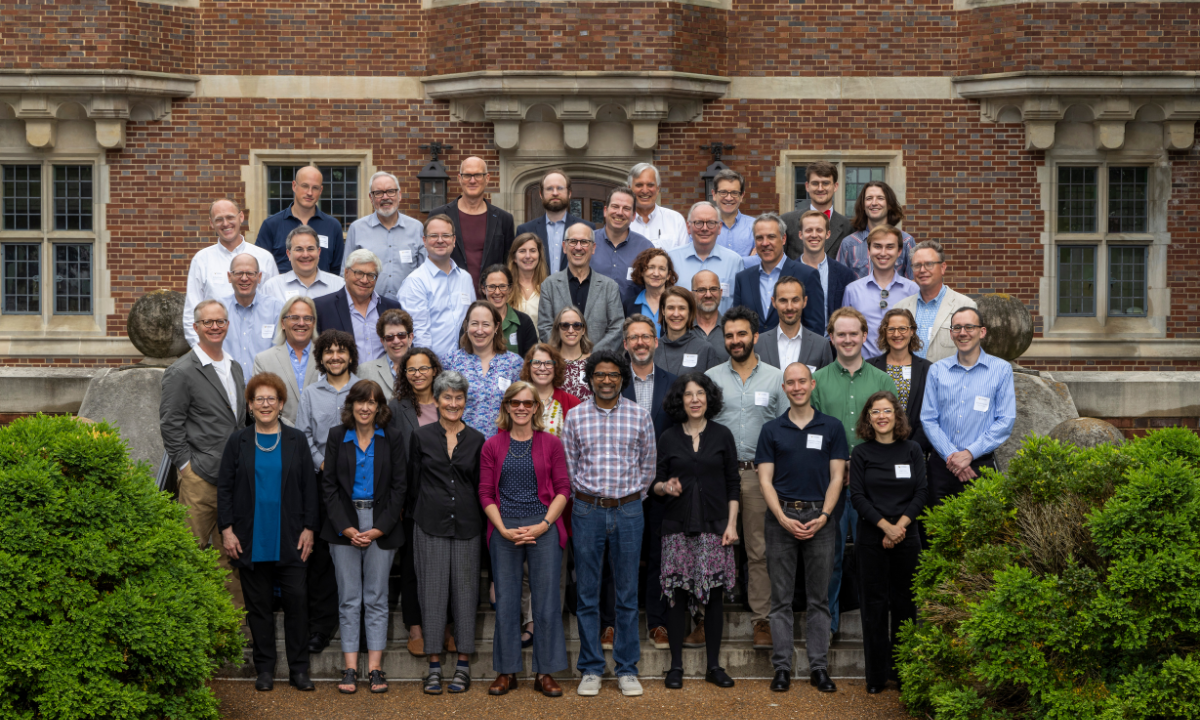On May 3 and 4, the Vanderbilt Policy Accelerator for Political Economy and Regulation (VPA) and the Vanderbilt University Department of History hosted “How The New Deal Was Run,” a conference about the implementation of the New Deal programs that transformed American life in the 1930s and beyond.
Led by Sarah Igo, the Andrew Jackson Chair in American History and Dean of Strategic Initiatives for the College and Arts and Sciences, and Ganesh Sitaraman, the New York Alumni Chancellor’s Chair in Law at Vanderbilt Law School and Director of VPA, over 40 renowned historians of American politics, law, business, and labor descended on Alumni Hall. Over two days, they discussed new scholarly work detailing the bureaucratic nitty-gritty of setting up and running New Deal programs ranging from the Social Security Administration to the Civilian Conservation Corps.
“Although the New Deal is one of the most studied topics in the history of the U.S. government, we know too little about how its array of new agencies got to work, and how state capacity grew—often very rapidly and with scarce resources,” said Igo. “We were fortunate to have such an exceptional group of scholars come to Vanderbilt to shed light on this critical question.”
Many answers were offered, surveying how officials found creative ways to fund and staff the programs, made use of pre-existing organizations in government and civil society, coordinated between different executive departments and agencies, and made savvy use of public relations to market the programs to the American public.
Though focused on the past, the participants discussed the legacy of the New Deal with an eye towards the present and future of American policymaking. Many noted the strong interest of policymakers in Washington in these questions, and hoped to use the opportunity to expand the popular imagination of how government can address big problems.
“Too often, people think that the federal government can’t do big things – and certainly not multiple big things all at once,” said Sitaraman. “Studying the bureaucratic machinery of the New Deal has lessons for how to implement bold policy programs today.”
The organizers intend to compile the papers presented at the conference – including ones on the Federal Art Project, the Rural Electrification Administration, and the Works Progress Administration – into an edited volume.
“We are excited to continue this important conversation about the legacy of the New Deal and its implementation,” said Sitaraman. “In that conversation, we want to bring in not only academic historians and legal scholars, but also a broad public, including policymakers who are looking for new tools to address the major challenges our nation faces.”
The Vanderbilt Policy Accelerator for Political Economy and Regulation (VPA) is part of Discovery Vanderbilt, a groundbreaking initiative to bolster innovative research and education at Vanderbilt.
The mission of VPA is to swiftly develop and advance cutting-edge research, education, and policy proposals at a pace that aligns with the urgency of today’s challenges.
To learn more, visit Vanderbilt Policy Accelerator.
